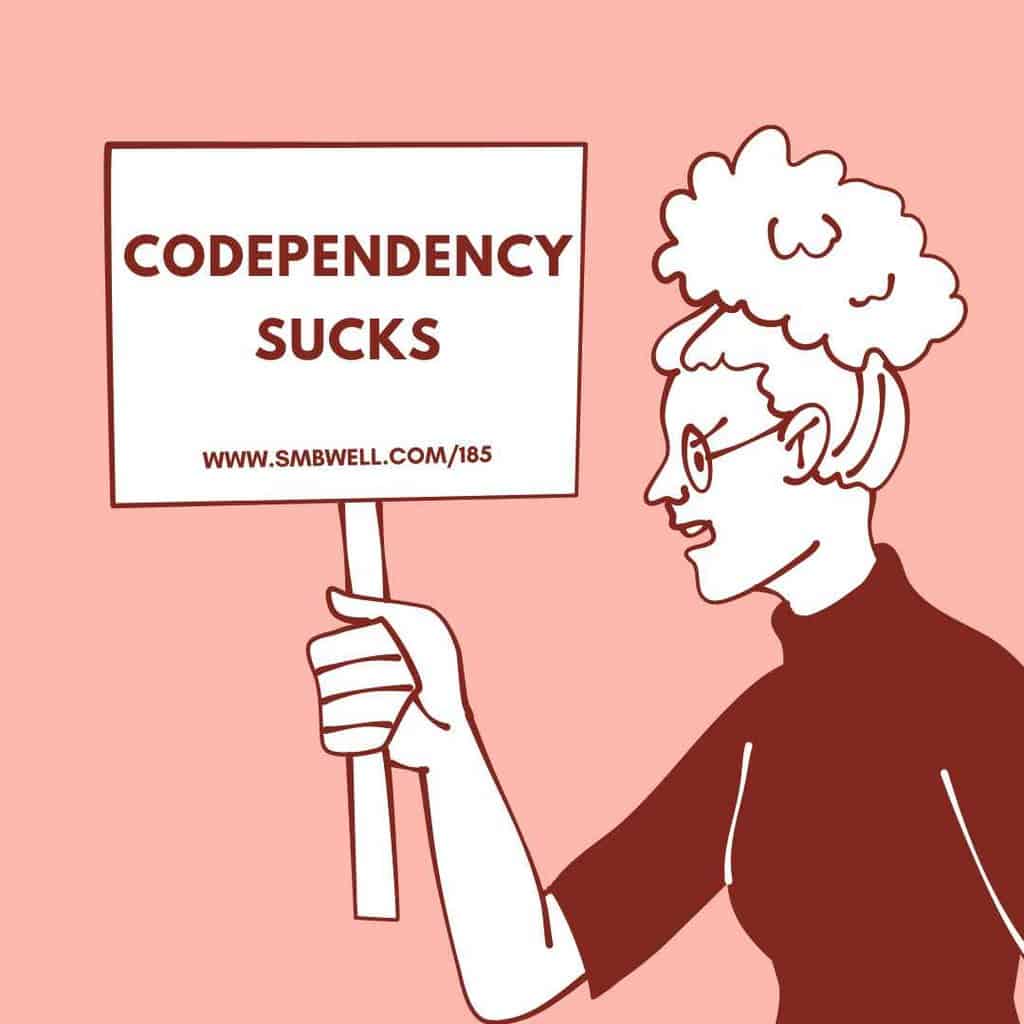Podcast: Play in new window | Download
Subscribe: Apple Podcasts | Spotify | Amazon Music | RSS | More
Codependency
Codependency is a term that is thrown around a lot and, when at play, affects all of our relationships. For that reason, I am dedicating this entire post to learning more about what codependency is and how codependence looks when in action. In this week’s podcast episode I walk through three specific situations. In them, I highlight a codependent and an interdependent response. Listen here.
Be Kind
Codependency is very often modeled in our modern movies and literature. It is taught in educational systems and passed down in family lines. Therefore, it is imperative to be kind to yourself as you begin this journey.
Codependency is harmful, hurtful, and destructive. It is a big cause of disfunction in families. Nevertheless, it is common and the kinder you can be with yourself and you uncover where your codependent thinking and tendencies are, the greater your opportunity for growth.
What is Codependency?
There are many definitions for codependency. My favorite definition is from former podcast guest, Terri Cole. She defines high-functioning codependency on page 50 of The Boundary Boss book in this way:
Codependency is when you feel overly responsible for the feelings and actions of certain people in your life. Because of this, you over function, over give and/or automatically offer advice as an attempt to control outcomes. This hyper-focus on the lives of others dictates that your personal needs and desires get sidelined.
In today’s show I break this definition apart so that we can see how it shows up in our lives in sneaky or programmed ways. The more we move away from codependency into interdependency, the better we will feel in our relationships and the less pressure we will feel in our life. Without a doubt it has been transformational for me.
Fiercely Committed. Lovingly Detached
Codependency pretends to be helpful. Further, our society often supports women acting in codependent ways. In many ways, the patriarchy was built on codependent modeling. Nonetheless, it is harmful. Eventhough it can feel like, in our advice giving and over functioning, we are helping the people we love. It is not.
Reality is quite different and study after study shows that children raised in codependent homes have lower self esteem and more anxiety than those raised in interdependent homes. Further, how does it feel if you’re the one who’s doing the over giving, over functioning, and over advice giving? We feel much more resentment, frustration and annoyance than their interdependent counterparts.
Stepping Away from Codependency will feel Uncomfortable
Undoubtably, seeping away from conditioned, patterned behavior will feel uncomfortable. Further, seeing my kids feeling lonely, sad, or disappointed is one of the hardest things for me to do as a parent. Yet, codependency is not the answer. Use the knowledge gained in this podcasts episode as fuel to resist the urge to problem solve, blame others or fix other people’s problems.
In these moments of discomfort, I have some thoughts I’ve decided on ahead of time to practice. I suggest you come up with your own intentional thoughts also. Some thoughts that work for me are:
- “This is helping my son develop skills to become a confident young man”
- “My husband/son/friend is a human having a human reaction”
- “It is hard for me to see those I love suffering and that is okay”
- “This is not mine to fix”
Fun isn’t it? Remarkably it is in doing the hard work of avoiding our programmed urges, our life will become easier and less stressful. Courage dear warrior!
Forward Action Steps
Interdependent relationships are so much less stressful and feel so much better to us warrior! When we think we’re responsible for other people’s feelings we feel responsible and think a lot about how to solve and fix their problems. It’s so stressful! It’s stressful enough to live our own lives, feel our own feelings, and manage our own minds – how the heck are we supposed to manage everyone else minds.
People are going to have uncomfortable experiences in their lives. It is not our job to fix them. It’s your job to love them.
So much of our work together and your possibility for future growth lies in you not castigating yourself for being yourself. Our codependent tendencies developed when we were young and innocently wanting love and connection from those around us. Chances are, those around us didn’t know about emotional intelligence and/or were parented in that “kids should be seen and not heard”codependent way. Lighten up with yourself. Today is a new day.
If you want tools to help you specifically with parenting, please run to sign up for my Parenting Program. If you’re not a parent of kids ages 10-25 and you want to feel the freedom of interdependent relationships instead of codependent ones, sign up for the membership. We are working on codependency in march because we are a bunch of women who love living lives that feel easier! Better! Free-er! What are you waiting for?
Resources Mentioned
Susie’s Codependent Quiz: How Codependent Am I?







Trackbacks/Pingbacks